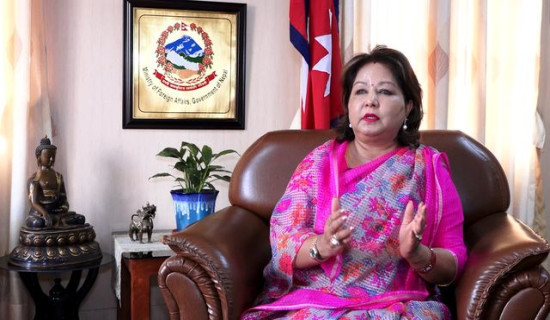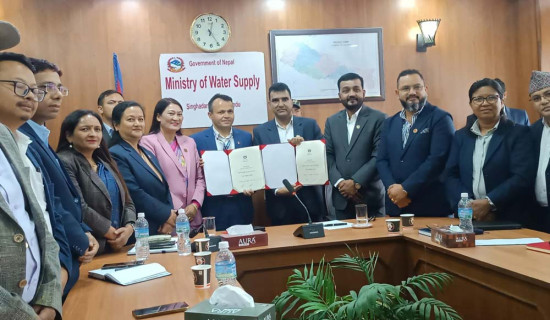- Saturday, 10 May 2025
Promising Economic Signs
If the newest Ministry of Finance's statement is anything to go by, not only is the economy on track, but it is also showing signs of improvements in the last three months after the formation of the present government. At the same time, the ministry has also acknowledged that the economy is not without challenges. Over that period, a high-level economic reform advisory commission was formed to make suggestions for the improvement of the country's economy, implementation of the internal revenue mobilisation strategy, completion of the preparations for the country's credit rating and the submission of the Bill to the Federal parliament. The confidence of the private sector has been boosted, and capital expenditure and revenue collection have increased compared to the same period last year.
Similarly, interest rates have fallen, credit flows to the private sector have soared, the capital market has become active, and foreign exchange reserves have increased, as have the remittances. According to the ministry, capital expenditure has increased by 65 per cent during that period compared to the same period last year, while revenue collection has increased by 13 per cent. The foreign currency reserves have reached Rs. 2,152 billion. Remittance inflows has increased by 15 per cent while interest rates have decreased to an average of 6.151 per cent.
According to the ministry, the implementation of the budget has been made more effective by issuing 73-point guidance. To that end, the budget implementation action plan has been formulated and implemented, and this is said to have helped bring significant improvement to current, capital and overall expenses. What's more, the Regulation on Securities Issuance and Transaction of Small and Medium Organisation, 2081 has been submitted to the Cabinet for approval. Additionally, the use of luggage and vehicle scanner machines has been introduced at the Tatopani Customs Office, lab module has been started at Birgunj Customs Office, Bhairahawa Customs Office and Nepalgunj Customs Office.
Initiatives have also been taken to make the multi-year contract process more systematic and enforceable. The Customs Tariff Regulation, 2081 has been drafted and submitted to the Council of Ministers. Once signed into law and brought into force, the customs process is expected to improve further. Going by these improvements and others in the works of the ministry, it seems that the government is serious about boosting the momentum of the economy and bringing about tangible progress in its every dimension, as well as doing the needful to that end. Three-month period is, of course, too short to assess the achievements, but signs that things are going to improve meaningfully are unmistakable.
We are of the opinion that, in order for the government to prove its mettle, it must find concrete ways to translate the mounting foreign exchange reserves into economic activities. Ballooning reserves is an evidence to suggest that the money, which could give a lifeline to floundering businesses or a boost to new ventures for a vibrant economy, has continued to pile up in the banks. The reserves, though critical to cushion the economy against global economic turmoil, need to be unleashed to the market in prudent manner to ensure that businesses don't remain starved of much-needed cash to stay afloat. As people have pinned their high hopes on this government, it cannot afford to let them down.

















